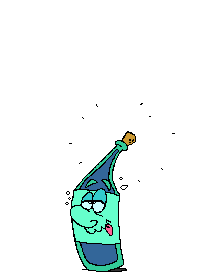Every third interviewee of the 1995 Median
survey considered alcoholism an illness, while
two-thirds labeled it as a fault of character or
a will power weakness. However the majority (69
percent) said alcoholics should be forced into
medical treatment. Of the rest, 5 percent
suggested alcoholics should be fined, 3 percent
suggested they be imprisoned, and only 15 percent
would leave them alone.
"There still is very strong moralizing about
alcoholics being sinful, weak people without will
power, animals," said a man who gave his
name as Laszlo, a recovering alcoholic whom
Alcoholics Anonymous (AA).
According to Dr. Gaspar Takach, head of the
Addictive Diseases Department of the National
Psychiatric and Neurology Institute, alcoholism
is a disease in which the sick person drinks more
and more alcohol to acquire a state of happiness,
or to avoid uncomfortable feelings.
Vicki Underland-Rosow, an American Ph.D. in Human
Systems from the Union Institute, says in her
book Shame Spiritual Suicide that the
root cause of addictions is shame: " ...
Shame is used to avoid facing an addiction and
then the addiction is used to avoid facing the
shame. Both are used to distort, deny or divert
feared and unwanted feelings. The use of
addiction as a "fix" to avoid
experiencing shame is a temporary solution; it
merely results in compounding the problem by
increasing the shame. And so the cycle
continues."
The situation is critical, says Dr. Andras Veer,
director of the National Psychiatric and
Neurology Institute and director of the Mental
and Hygiene Program at the Ministry of Public
Welfare. Until three or four years ago, the law
forced people to go through detoxification
programs, but today - except for those who commit
crimes - it is not applied any longer because it
violates human rights. If there is no motivation
to give up drinking, the results are poor: only
one percent of those who forced to go through
detoxification became sober. Still society makes
pressures to institutionalize aggressive
alcoholics.
Istvan Vajda, president of the National
Association for the Protection of Sobriety,
Health and Family, describes the typical scenario
of a family disrupted by alcohol, "From a
quarrelsome atmosphere, with evenings of 'Where
have you been, why you stayed so late?' an
aggressivity builds up. Children are horrified to
see their father drunk, their mother beaten up.
In vain, the neighbors call the police for they
can intervene only in case of serious violence or
crimes. In his drinking bouts he sells whatever
valuables they have in their home: furniture, TV,
carpets, anything in his reach. The only solution
for the defenseless woman is to turn to the court
and ask for a divorce. In such a situation
mothers come to ask our help," Vajda
explained the aim of their organization. They
host them in temporary homes and help them find a
solution through legal channels, be it at the
guardianship authority, or court, or by
contacting some relatives who can host them
temporarily. |
"We try our best to free her
from her rowdy husband." At least 150 Hungarian organizations function
to help alcoholics give up drinking.
Professionals search for new ways of dealing with
the problem.
"Clinics of the old type would treat
alcoholics beyond help whose health had been
badly damaged already," explained Dr. Maria
Holzberger, director of the National Institute
for Alcoholic Diseases: "They come when
there is no way back from their physical sickness
and mental distortions, when they are cornered at
life's periphery." Now psychiatrists of the
Regional General Prevention Health Centers for
Alcohol Disease (TAMASZ) don't wait until the
patients asked for help, but they induce an
early, preventive treatment. They teach the
professionals of civil and religious
organizations to recognize the symptoms of a
drinking problem. "This way we not only stop
an alcoholic's career," she said "but
also we re-establish for the children of the
alcoholic parent a milieu that won't make their
behavior deviant, but that they would grow up
valuing a healthy and harmonious life."
Children raised in such dysfunctional households
do not get the attention and direction they need.
They are abandoned emotionally. According to John
Bradshaw, one of the most popular American
specialist in recovery from addictions
abandonment sets up compulsivity. "Since the
children need their parents all the time, and
since their needs are not met, they grow up with
a cup that has a hole in it," he said. This
hole in the soul is the fuel that ignites the
compulsivity. The person looks for more and more
love, attention, praise, booze, drugs, money,
etc. The drive comes from emptiness. Compulsivity
is set up in families. Addictive people create
needy marriages and engender families in which
children are shamed through abandonment. The
victimized children from these marriages become
equally compulsive and continue the cycle.
Takach says that the so called "alcoholic
career" critical starting period is the age
of 16-24, when the young turn mature.
"Alcoholism is a behavior disorder," he
says. Childhood decides who will be an alcoholic
or not. Family role models, cultural heritage,
then social factors, peer pressure plus a
stressful environment with difficult
relationships are added into the making of an
alcoholic person. Is it possible to free oneself
out of alcoholism? Many succeed, he said. The
road towards sobriety starts through
acknowledgement: "I am an alcoholic, I can't
go on like this, I already paid too much for
it." When the person wants to stop, he looks
for new alternatives, experimenting new behaviors
and learns new techniques to stop drinking.
If one doesn't want to go through a classic
Hungarian detoxification going through
psychotherapy, family therapy, reality control,
or transaction analysis, there is possible to get
help at the American originated 12 steps
self-help group program of the Alcoholics
Anonymous (AA) |


